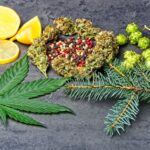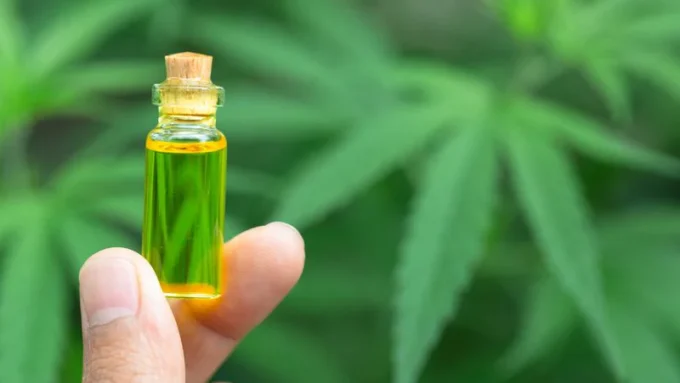
What’s the Difference Between Isolate CBD and Distillate Extracted CBD?
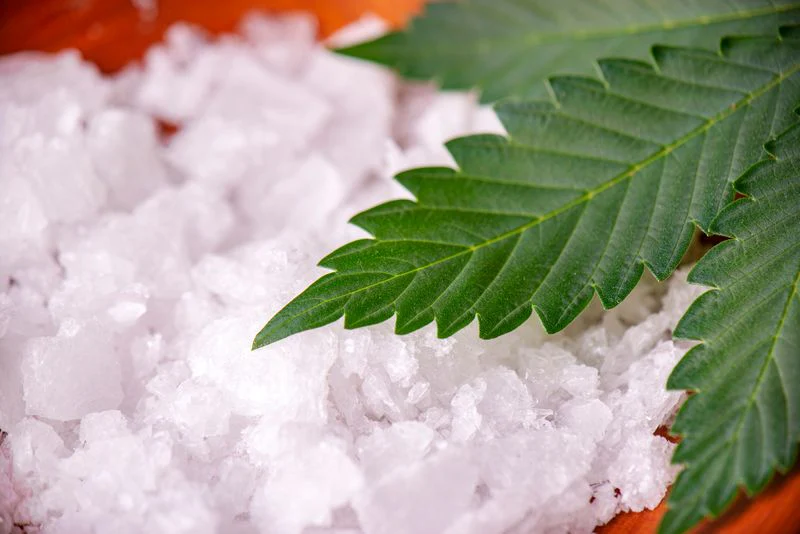
Have you ever felt overwhelmed by product listings? We have. Fortunately, you won’t find food-grade fillers, preservatives, or coloring agents in any high-quality CBD oil on the market.
Even so, with all the various specialized terms used across different types of CBD products, it’s hard to know which oil best fits our needs. Since the effects on our health depend on the ingredients, the most important question becomes: What’s the difference between isolate CBD and distillate extracted CBD?—so we can recognize why it matters.
Isolate CBD
As the name suggests, isolate CBD is the isolated form of cannabidiol (CBD). Before isolation, CBD is one of the active ingredients in full-spectrum hemp oil. To achieve “isolate” status, all natural compounds in the plant (except CBD) must be completely removed, turning CBD into a pure crystalline solid or powder with no distinct smell or taste.
Depending on the extraction process and method used, high-quality isolate CBD can reach a purity level of over 99%. It is then mixed with hemp seed oil or other carriers for ingestion or topical use. This is the clear advantage of isolate CBD. It provides the highest purity possible and retains its effects even when added to other substances (cookies, creams, etc.), while also eliminating the earthy taste of hemp—making isolate CBD an ideal choice for topicals and edibles.
Amazingly, the plant we know and love contains at least 100 known cannabinoids and about 300 non-cannabinoid compounds. These chemicals are unique to cannabis and do not exist in any other plant on Earth. As such, they interact uniquely with the human body’s own chemicals. Using isolation methods, we can extract these compounds.
Considering the complex relationships many compounds have within a plant, researchers are highly interested in how cannabinoids interact with one another. Naturally, our body’s cannabinoid receptors form a unique blend when interacting with multiple cannabinoids compared to interacting with a single isolated one—leading to different effects on the body. This is why distillate extracted CBD has been gaining more attention.
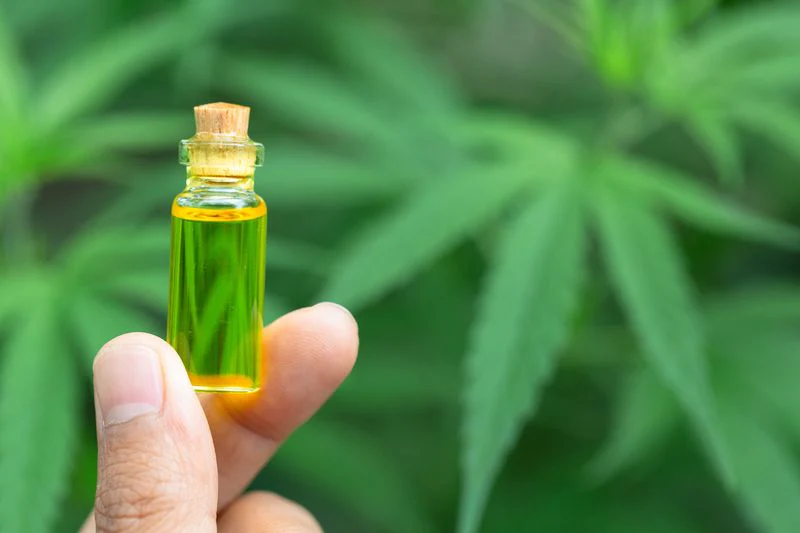
Distillate Extracted CBD
Distillate extracted CBD is a highly concentrated form of CBD that has undergone a distillation process to remove THC while preserving as many other cannabinoids and terpenes as possible. This purification of the liquid is achieved through heating and cooling processes, resulting in an ideal mixture for desired effects.
Although distillation allows for effective addition or removal of cannabinoids, trace amounts of THC may still be present. Of course, THC content in both isolate CBD and distillate extracted CBD can be considered negligible and won’t make you feel “high” or euphoric. In fact, CBD distillates are legally allowed to contain 0.03% THC—far too low to cause psychoactive effects.
It is well-known that CBD is a non-psychoactive cannabinoid. Unlike THC, it offers benefits without unnecessary “highs,” making it an attractive supplement for people who need to stay focused throughout the day. But it’s important to choose a brand that provides a Certificate of Analysis for its products, ensuring the THC levels are safe and nearly undetectable. Many low-quality CBD products lack proper testing or filtration, which could lead to failed drug tests.
Some of the well-known cannabinoids found in industrial hemp and recreational/medical cannabis include THC, CBD, CBG, CBC, and flavonoids. Although most cannabinoids do not cause a “high” or euphoric effect, it’s evident that their interactions with other chemicals do affect us. Research has already explored how different cannabinoids work together to enhance their interactions with the body’s endocannabinoid system—a process known as the “entourage effect.”
The “entourage effect” details the naturally occurring synergy between cannabinoids. Increasingly, studies are exploring how plant-based cannabinoids and terpenes interact, resulting in synergy that contributes to treating various conditions.
From pain and inflammation to neurological disorders and sleep quality, CBD is highly regarded in numerous studies for its wide range of potential applications in a world craving natural, effective medicines. In fact, one study explained how CBD enhances endogenous adenosine signaling, a vital response for tissue protection and inflammation reduction. As a result, some successful athletes (and individuals prone to inflammation) are turning to CBD. And it’s well known that where there’s inflammation, pain often follows. Excitingly, cannabinoid compounds like CBD and CBG are renowned for their pain-relieving properties.
Maximizing Your CBD Benefits
Simply put, both isolate CBD and distillate extracted CBD contain negligible levels of THC. The key difference lies in the content: isolate CBD contains at least 99% CBD with only trace elements of other substances (which significantly limits its benefits), while distillate extracted CBD contains an average of 50–70% CBD, alongside 30–50% of other natural cannabinoid compounds that work synergistically to support and enhance its potential health benefits—which would otherwise be limited.
Clearly, the difference between these two extract forms is important. If we want to enjoy the full benefits CBD has to offer, it must interact with other compounds in our body—as nature intended.
Recommended CBD Products
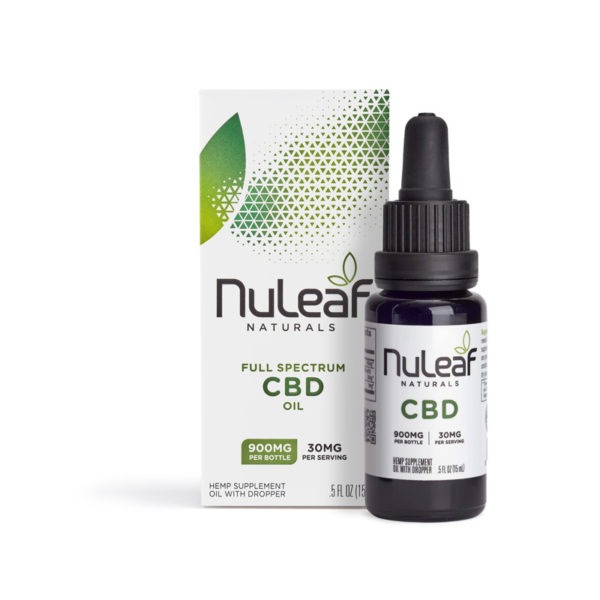
NuLeaf Naturals Full Spectrum CBD Oil
Our CBD oil is a whole-plant extract containing a full spectrum of naturally occurring synergistic cannabinoids and terpenes with a potency of 60mg/mL. NuLeaf Naturals suggests a starting dose of ten drops (30mg) daily or as needed.
View Product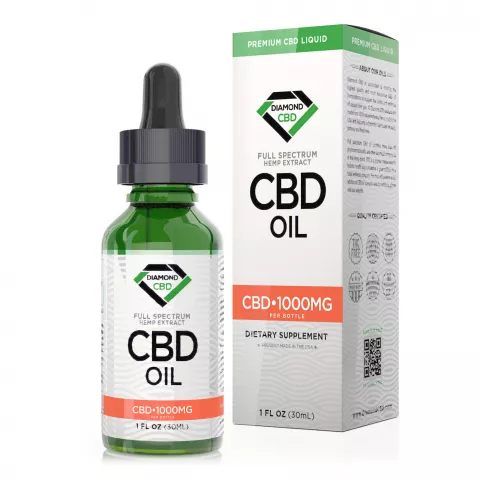
Diamond CBD Full Spectrum 1000mg CBD Oil
Diamond CBD Full Spectrum CBD Oil can be used as CBD oral drops, applied topically, or added to food. Infused with organic hemp-derived CBD oil, it offers a natural and versatile wellness option.
View Product
